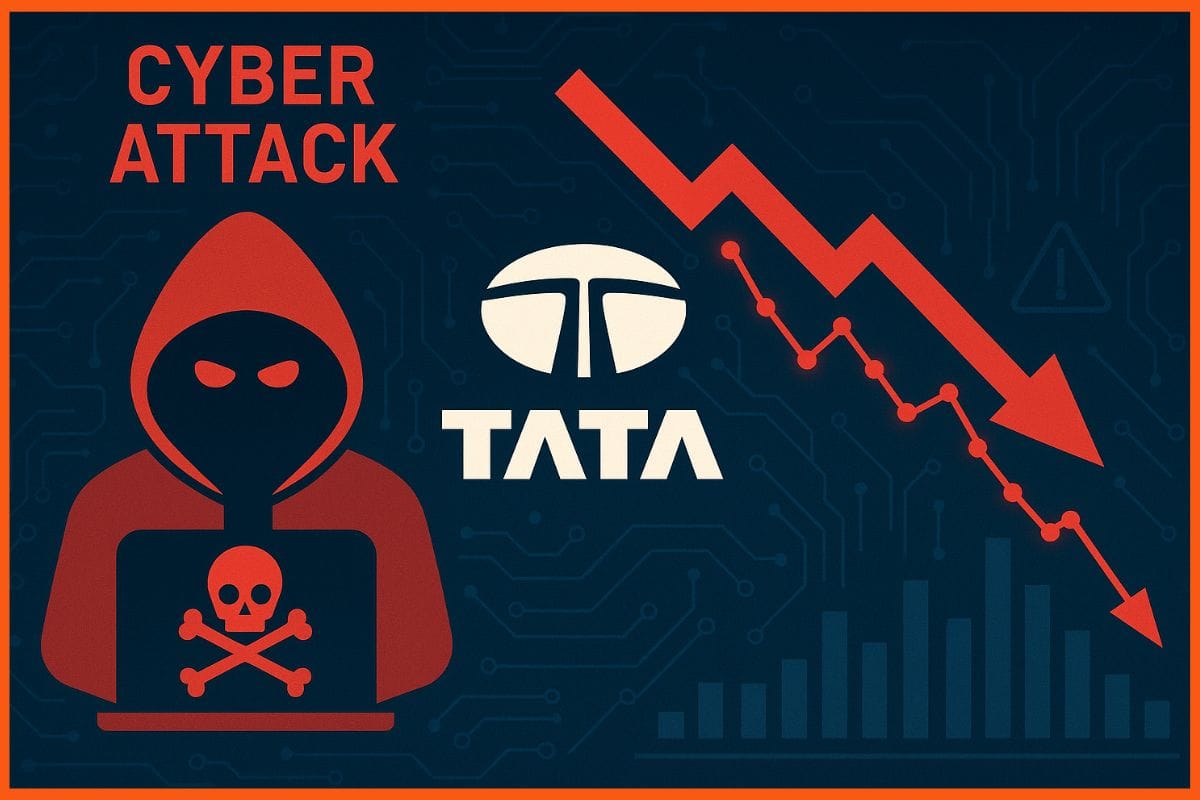India’s real estate and infrastructure sector continues to expand as cities grow and new business hubs emerge. GMI Infra, headquartered in Chandigarh and active in Mohali, develops IT parks, logistics hubs, textile zones and residential communities. The company focuses on building integrated spaces that combine practical design with sustainable features. Under CEO Mohit Bansal, GMI Infra has completed several key developments that contribute to local infrastructure and support community needs.
In this article, explore more about GMI Infra, its founder and team, its business and revenue model, challenges, growth, and more.
| Company Name | GMI Infra |
|---|---|
| Headquarters | Chandigarh, India |
| Sector | Real Estate |
| Founder | Mohit Bansal |
| Founded | 2018 |
| Website | www.gmiinfra.com |
GMI Infra – About
GMI Infra is not just a real estate company, it is a mission-driven movement to build the future of India, one smart city at a time. Headquartered in Chandigarh, India, GMI Infra is redefining infrastructure through innovation, sustainability, and community-first design. Every project is a canvas where architecture meets purpose and development meets dignity.
GMI Infra – Industry
GMI Infra operates in India’s high-growth infrastructure and real estate development sector, with a focus on emerging Tier 2 and Tier 3 cities. With increasing urbanisation and government support, the market is projected to grow at over 10% CAGR in the next five years.
The company focuses on:
- Industrial Infrastructure
- Residential Ecosystems
- Tech Zones & Free Trade Corridors
- Logistics & Textile Parks
- Commercial Hubs
By 2030, GMI Infra envisions a strong footprint across North and East India, with 10+ major IT parks, thousands of jobs created, and sustainable satellite cities built from the ground up.

GMI Infra – Founder and Team

Mohit Bansal, Founder & CEO of GMI Infra, leads with a vision to build purpose-driven infrastructure that shapes communities and empowers growth.
Kunal Bansal, Director at GMI Infra, plays a pivotal role in overseeing project execution, on-ground operations, and client delivery. With a keen eye for detail and a strong operational mindset, he ensures that GMI’s developments meet the highest standards of quality, timeliness, and customer satisfaction.
The team includes experts from top institutions such as IIT Ropar, Punjab Engineering College, NITs, ISB Mohali, and Delhi University. Together, they bring deep expertise in architecture, planning, sustainability, and execution, fueling GMI Infra’s mission with both insight and impact.
The company maintains a collaborative leadership structure across innovation, acquisition, sustainability, and execution
GMI Infra – Vision and Mission
GMI Infra’s vision is deeply national: to contribute meaningfully to India’s growth story by 2047, aligning with the vision of a developed nation.
Its mission is clear: to build ecosystems, not just buildings. From tech corridors and textile parks to luxury homes and logistics hubs, the company develops infrastructures that fuel jobs, inspire innovation, and enhance quality of life.
The motto: “Built for the Nation. Designed for Tomorrow.”
GMI Infra – Startup Story
The spark behind GMI Infra was not a pitch deck, it was personal. Founder Mohit Bansal drew inspiration from his childhood, surrounded by architecture and India’s ambitious infrastructure feats. It was never just about profits, it was about purpose.
As a child, Bansal was not only fascinated by construction itself but also by how these projects helped entire communities grow, connect, and build trust in a shared future. Those early observations instilled in him a sense of responsibility and a vision for what infrastructure could truly mean, not just steel and concrete, but impact, inclusion, and purpose.
This foundation of real-world learning and human connection shaped GMI Infra’s mission: to build spaces that go beyond function and become catalysts for community and progress.
GMI Infra – Name and Logo

The name “GMI” stands for Grey Marble Infra, a thoughtful blend of two ideas:
- “Grey” symbolises intelligence, adaptability, and creative thought, reflecting the company’s ability to shape future-ready infrastructure.
- “Marble” represents timeless strength, resilience, and enduring quality, the foundation of everything it builds.
The logo features a rising sun composed of bold linear rays, framed within a golden outline. This symbolises new beginnings, forward momentum, and the dawn of a brighter, more connected urban future. The rising lines serve as a tribute to GMI Infra’s commitment to vertical growth, sustainable design, and transformative impact.
GMI Infra – Products/Services

GMI Infra creates ecosystems, not isolated structures. Its offerings span IT parks, luxury residences, industrial corridors, logistics hubs, textile zones, and commercial complexes, each designed to elevate both function and experience.
The company integrates:
- LEED & GRIHA-certified green architecture
- Water conservation systems and solar energy adoption
- EV-ready infrastructure and smart automation
- Green buildings with climate-responsive design
- Smart city technologies for enhanced livability and connectivity
GMI Infra – Business and Revenue Model
GMI Infra operates across commercial, industrial, and residential real estate through a hybrid B2B and B2C model. The company generates revenue through its projects expanding across commercial, residential and industrial components, long-term leasing, and plug-and-play infrastructure for businesses.
Its offerings include IT parks, logistics parks, industrial zones, and premium homes, supported by government partnerships and land monetisation strategies. Every project is future-proof and built to serve diverse user needs, from individual homeowners to global enterprises.
GMI Infra – Launching Company Strategies
GMI Infra’s first clients came through government collaboration, community engagement, and stakeholder trust. Personal rapport and transparency enabled the company to cross the 100-customer mark without relying on traditional marketing.
GMI Infra – Customer Growth and Retention Strategies
GMI Infra retains and grows its customer base by delivering value beyond the transaction, through quality, experience, and community.
Key strategies include:
- Sustainable design and green-certified infrastructure
- Prime location offerings with strong future potential
- Ongoing maintenance and upgrade programs to protect long-term value
- Personalised communication throughout the buyer and tenant journey
- Community-building initiatives and cultural events, such as the GMI Golf Championship
- Loyalty and referral programs to reward long-term relationships
- After-sales engagement for support, satisfaction, and re-investment
- Strategic partnerships and influencer-led trust building
GMI Infra – Challenges Faced
GMI Infra has faced challenges such as market volatility, economic uncertainty, and frequent policy changes, all of which required rapid adaptation.
Technological evolution reshaped buyer expectations, prompting the company to embrace smart infrastructure and digital-first experiences. Evolving demand for sustainability and design innovation also necessitated constant upskilling and reinvention.
Each challenge has acted as a catalyst for building a more agile, future-ready GMI Infra.
GMI Infra – Growth
Headquartered in Mohali, GMI Infra has a significant project pipeline supported by strong partner networks and government affiliations.
Notable projects include:
- GMI Business Park: A 90-acre (approx.) integrated work zone blending IToffices, Commercial space, Industrial zones and Residential space.
- GMI Elite Homes: S+4 luxury residences offering sustainable, community-centric living with 3BHK apartments across 34 towers in a gated community.
- GMI IT Tower: A tech-forward, strategically located office space near ISB and Infosys, equipped with energy-efficient design and smart automation.
- GMI Free Trade Zone & 200-acre Logistics Park (Upcoming): To be developed in partnership with the Government of Uttar Pradesh, this integrated hub will boost exports, attract global investment and revolutionise warehousing and supply chain infrastructure in North India.
- GMI Sky Greens (Upcoming): A high-rise residential project redefining urban comfort in Mohali.
- GMI Platinum Square: A next-generation commercial hub with advanced design and accessibility.
- GMI IT District (Upcoming): North India’s emerging tech innovation corridor with smart infrastructure.
GMI Infra – Funding
GMI Infra has been independently self-financed through personal investments. The company is looking to raise INR 2000 crore by 2030 to support strategic scale-up of the real estate sector across India.
GMI Infra – Key Tools and Software
GMI Infra uses a mix of digital tools to streamline operations, enhance marketing, and deliver seamless experiences:
- Marketing & Advertisement Tools: Google Ads, Meta Ads, and SEO platforms
- Property & Inventory Management Tools: Real estate CRMs such as Salesforce, Zoho, and cloud-based inventory systems
- Design Tools: Canva and Adobe Creative Suite for branding and campaign creation
These tools enable GMI Infra to stay agile, data-driven, and closely connected with both its audience and operations.
GMI Infra – Government & Industry Collaborations
GMI Infra has actively engaged with key government and industry-led initiatives to accelerate growth and impact.
The company has partnered with state governments for infrastructure development across Punjab and Uttar Pradesh, participated in the UP Global Investors Summit to showcase large-scale logistics and tech infrastructure projects, and actively engages with Invest Punjab to foster industrial growth and ease of doing business. It also collaborates with the Indian government initiative “Smart Cities Mission” to promote sustainable urban development.
These programs have strengthened GMI Infra’s capabilities, expanded its vision, and helped align the company with India’s development agenda.

GMI Infra – Awards and Recognitions
GMI Infra has been recognised for its innovation, leadership, and community engagement across the real estate industry.
- Featured in ET Now, Realty+, Construction Week, and Urban Voices
- Known for hosting the high-impact GMI Golf Championship, 2nd Kuber Cup Badminton Tournament, and promoting wellness, networking, and cross-industry dialogue
- Recognised for significant contributions to green building practices, urban sustainability, and fostering impactful public–private partnerships through platforms such as the Green Future Leadership Summit (2025), GRIHA Regional Conclave (2025), and Build X Punjab (2025)
- Felicitated at events like the Chandigarh Rose Festival and PU Sports Meet for civic and CSR leadership
These milestones reflect GMI Infra’s ongoing commitment to excellence, innovation, and impact, both on and off the field.
GMI Infra – Future Plans
Over the next 1-2 years, GMI Infra plans to launch GMI Sky Greens and GMI Residences, commence Phase 1 of the GMI IT District and GMI Textile Park, and expand the Business Park model to more cities to accelerate technology integration across its projects.
FAQs
What types of projects does GMI Infra develop?
GMI Infra develops integrated commercial, residential, and industrial projects, including IT parks, logistics hubs, textile zones, and luxury residential communities. Each project focuses on sustainability, smart infrastructure, and community-centric design.
Who is the founder of GMI Infra?
Mohit Bansal is the founder and CEO of GMI Infra. He leads with a vision to build purpose-driven infrastructure that shapes communities and empowers growth.
Where are GMI Infra’s headquarters?
GMI Infra is headquartered in Chandigarh. The office serves as the central hub for the company’s operations, project management and strategic planning across real estate developments.






























